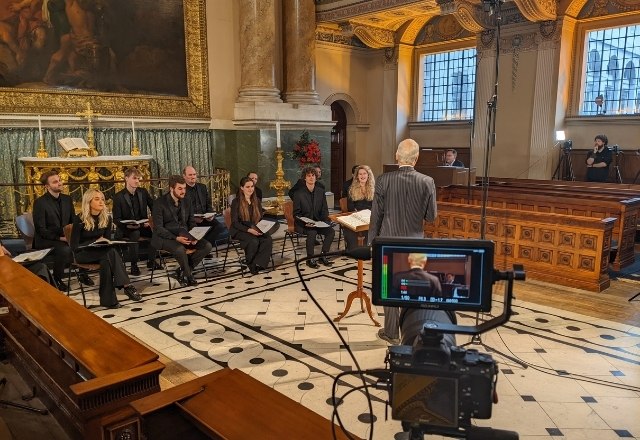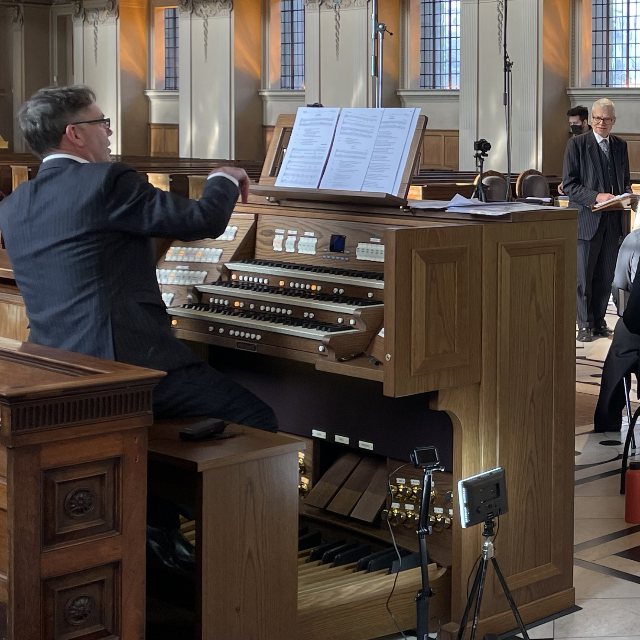With Ralph Allwood, Mark Shepherd, and the Old Royal Naval College Trinity Laban Chapel Choir.
Psalm 114 is sung here to an ancient chant known as Tonus Peregrinus, which Ralph Allwood suggests seems very likely (according to recent research) to have been used in the temple in Jerusalem, before it was destroyed. That makes it possibly one of the oldest tunes in current use in the church. While most of the music used at the time of the original Jerusalem temple has utterly vanished, it’s thought that this tune somehow survived.
The chant is what’s known as a single (as opposed to double) chant, in that there are only two phrases of music, and each verse of the psalm is sung to the same chant. This can make them relatively simple-sounding or plain, and they tend to be used for short psalms. In double chants, which tend to be more harmonically interesting or adventurous, the even verses are sung to the second half of the chant. (There are even a few triple or quadruple chants.)

Tonus Peregrinus used as an Anglican psalm chant is indeed based on a medieval plain chant, the so-called “wandering tone” (Tone 9) that was slightly out of the ordinary. The second half starts on a different note to the first half, which was not the convention otherwise.
Tonus Peregrinus has an interesting progression (peregrination?) from a definite implication of F major in the first part, to D minor at the end, which Ralph Allwood suggests that people like for some reason. He recalls The Beatles’ song, Yesterday, which does something similar at the start.

Singing the chant in Unison or Harmony?
Here the choir experiments with the question of whether to sing the chant in unison or in harmony. Ralph explains that he has always done it in unison, with some of the verses alternating between upper and lower voices, whereas Mark Shepherd on the other hand says that he has always done it in harmony.
The alternating unison version enables the deep voices to sing the more forbidding words, and the high voices the lighter text. Towards the end of the rehearsal, they compare the two and Mark decides he really likes the unison version, so the choir opts for that in the final performance.
Enjoy this simple, beautiful and ancient song!
- When Israel came out of Egypt: and the house of Jacob from among the strange people,
- Judah was his sanctuary: and Israel his dominion.
- The sea saw that, and fled: Jordan was driven back.
- The mountains skipped like rams: and the little hills like young sheep.
- What aileth thee, O thou sea, that thou fleddest: and thou Jordan, that thou wast driven back?
- Ye mountains, that ye skipped like rams: and ye little hills, like young sheep?
- Tremble, thou earth, at the presence of the Lord: at the presence of the God of Jacob;
- Who turned the hard rock into a standing water: and the flint-stone into a springing well.

I’m a retired academic, with a background in music and audio engineering. I’m currently a consultant for Viscount & Regent Classic Organs, as well as being a freelance organist, including a role as organist/choirmaster at St Mary’s, Witney. I sing bass with Oxford Pro Musica Singers and the Cathedral Singers of Christ Church, Oxford.



